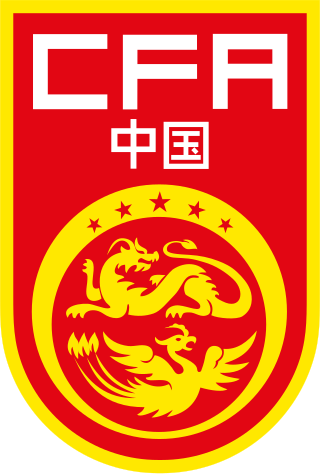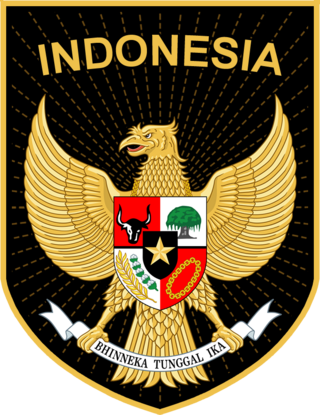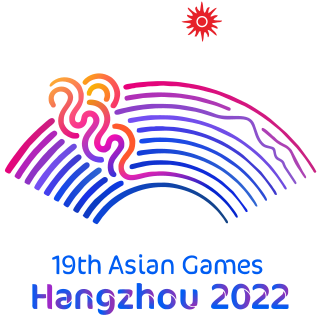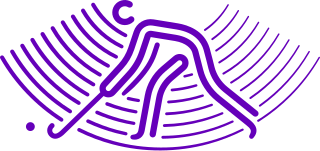
The Asian Games, also known as Asiad, is a continental multi-sport event held every fourth year among athletes from all over Asia. The Games were regulated by the Asian Games Federation (AGF) from the first Games in New Delhi, India in 1951, until the 1978 Games. Since the 1982 Games, they have been organized by the Olympic Council of Asia (OCA), after the breakup of the Asian Games Federation. The Games are recognized by the International Olympic Committee (IOC) and are described as the second largest multi-sport event after the Olympic Games.

The Japan national football team, nicknamed the Samurai Blue, represents Japan in men's international football. It is controlled by the Japan Football Association (JFA), the governing body for football in Japan.

The Bhutan national football team represents Bhutan in men's international football. The team is controlled by the governing body for football in Bhutan, the Bhutan Football Federation, which is a member of the Asian Football Federation and the regional body the South Asian Football Federation (SAFF). The national football team of Bhutan play their home games at the national stadium, Changlimithang.

The Hong Kong national football team represents Hong Kong in international football and is controlled by the Football Association of Hong Kong, China, the governing body for football in Hong Kong.

The Laos national football team is the men's national football team that represents the Lao People's Democratic Republic. It is affiliated with the Asian Football Confederation (AFC) and the regional ASEAN Football Federation (AFF).
The Philippines men's national basketball team, commonly known as Gilas Pilipinas, is the basketball team representing the Philippines. The team is managed by the Samahang Basketbol ng Pilipinas.

The China women's national football team represents the People's Republic of China in international women's football competitions and is governed by the Chinese Football Association.

The Indonesia national under-23 football team is considered to be the feeder team for the Indonesia national football team, represents Indonesia at football in the Olympic Games, Asian Games and Southeast Asian Games, as well as any other under-23 international football tournaments including the AFC U-23 Asian Cup. It is controlled by the Football Association of Indonesia.

The Philippines national baseball team represents the Philippines in international matches and tournaments. It is organized by the Philippine Amateur Baseball Association.
The China national under-23 football team, also known as the China Olympic team (国奥队), represents the People's Republic of China in international football competitions in the Olympic Games, Asian Games, as well as any other under-23 international football tournaments. It is governed by the Chinese Football Association (CFA). It combines two teams: China U-23 national team and China U-21 selection team.

The Mongolia national football team represents Mongolia in international football under the control of the Mongolian Football Federation (MFF). Founded in 1959, the federation was inactive between 1961 and 1997 and the men's national team did not feature in any international fixtures during that time. The federation was reorganised in 1997 and joined the AFC the same year. In 1998 the federation became a full member of FIFA, the international governing body for the sport. The MFF joined the EAFF as one of eight founding members in May 2002. Because of the harsh climate and a lack of suitable venues, the team has hosted few home matches in the past. However, in 2002 the MFF, with assistance from FIFA, began developing facilities in the country, including the creation of the 5,000-seat MFF Football Centre, which will allow the team to play more matches in Mongolia. About Mongolia's relatively low number of matches played, former national team player and coach Zorigtyn Battulga said, "Lack of games is a problem. No one will come to Mongolia in December and for us to fly to other countries is very expensive so it’s hard to arrange official matches."

The India national under-23 football team represents India in international under-23 football and is controlled by the All India Football Federation (AIFF). A member of the Asian Football Confederation (AFC), the team is eligible to compete in the Summer Olympic Games, the AFC U-23 Asian Cup, and the Asian Games, subject to qualification.

The 2022 Asian Games, officially the 19th Asian Games and also known as Hangzhou 2022, was a continental multi-sport event which was held from 23 September to 8 October 2023 in Hangzhou, China. The games marked the 110th anniversary since the creation of the first continental event, starting with the 1913 Far Eastern Championship Games.

The Cambodian national cricket team represents the country of Cambodia in international cricket competitions.

Zhang Yufei is a Chinese competitive swimmer who specializes in sprint freestyle and butterfly events. Considered one of the most promising swimmers in the international scene, she produced a tally of thirty-seven medals in her swimming career, spanning the Youth Olympics, Asian Games, World Championships and the Summer Olympics. In 2023, she was named as the most valuable player in the women's division, in the 2022 Asian Games in Hangzhou.

Field hockey at the 2022 Asian Games was held at the Gongshu Canal Sports Park Field Hockey Field in the Gongshu District, Hangzhou, from 24 September to 7 October 2023.
Qin Haiyang is a Chinese swimmer who specializes in the breaststroke and individual medley. He is the current world record holder in the 200m breaststroke. At the 2023 World Aquatics Championships, Qin became the first swimmer in history to win all three breaststroke events at a single edition of the championships. Qin was also the former world junior record holder in the 200m breaststroke and 200m individual medley. In 2023, he was named as the most valuable player in the men's division, in the 2022 Asian Games in Hangzhou.














